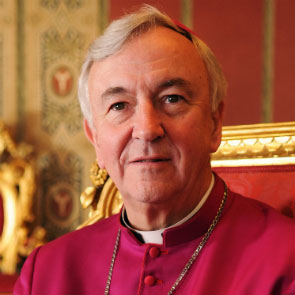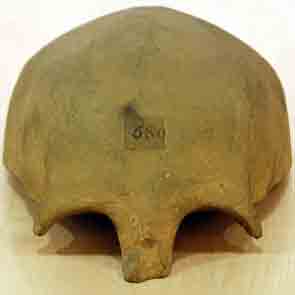A cast of the skull of St Bede - the English monk and scholar who was considered to be the founder of English history - has been rediscovered in a cupboard in a college of the University of Cambridge.
The cast, taken after the saint’s body was excavated at Durham Cathedral in 1831, was believed to have been lost until it was discovered by a University of Leicester academic.
Bede (also known as The Venerable Bede) was a 7th century monk who was one of the most influential scholars in medieval Europe. His most famous work, completed in AD 731, is the Historia Ecclesiastica Gentis Anglorum, the Ecclesiastical history of the English people.
It is the key source for understanding early British history and the establishment of Christianity in England, and it was the very first work of history to use the AD system of dating.
St Bede remains the only Englishman to be recognised as Doctor of the Church.
An exhibition showcasing the cast of the skull and the story behind the excavation of Bede’s tomb and the preservation of the skull found there, will be opening on 8 September at Bede’s World, Jarrow, Tyne and Wear.
Professor Jo Story, who discovered the cast, said: “The story of the skull of Bede is one that takes us to the heart of 19th century ideas about race and the peopling of the British Isles in antiquity.”
The article uncovers the tale of Alfred Westou, a thieving monk who, in the early 11th century, is said to have stolen the bones of Bede from his original grave in the monastery of Jarrow and secreted them into the tomb of St Cuthbert at Durham for safe keeping.
The bones were discovered there in 1104 when St Cuthbert’s tomb was moved from the old Anglo-Saxon cathedral into the magnificent new Norman building, where it remains today.




 Loading ...
Loading ...